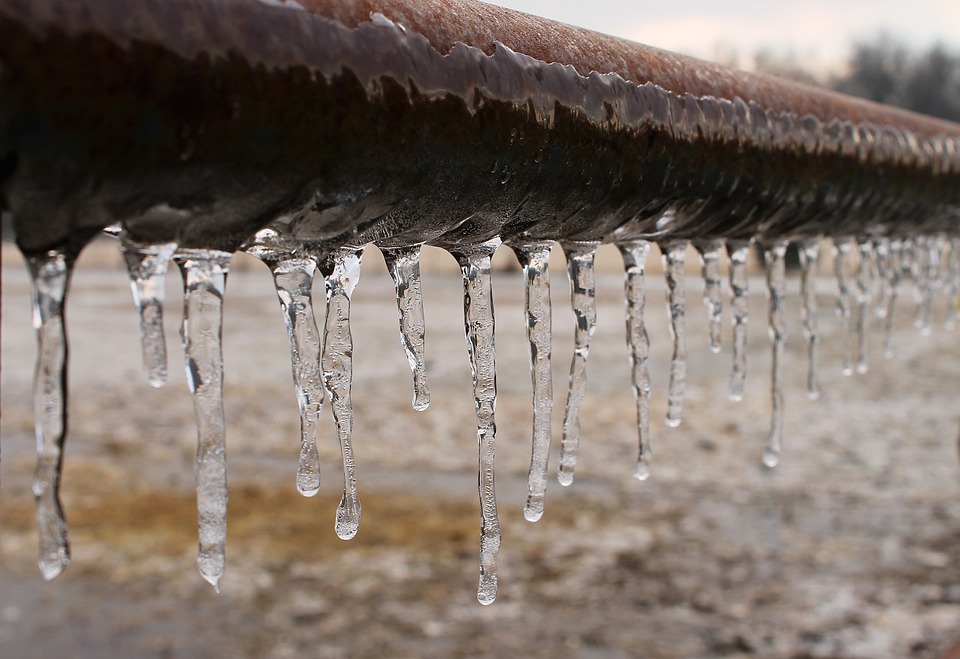Avoiding Frozen Pipes in Cold Weather: Pro Strategies
Avoiding Frozen Pipes in Cold Weather: Pro Strategies
Blog Article
They are making a number of good observations relating to How to Prevent Your Pipes From Freezing in general in this content underneath.
.jpg)
Winter can wreak havoc on your pipes, particularly by freezing pipelines. Here's exactly how to prevent it from occurring and what to do if it does.
Intro
As temperatures decrease, the risk of frozen pipelines increases, potentially bring about costly repair work and water damages. Understanding how to avoid icy pipelines is essential for house owners in cool environments.
Prevention Tips
Insulating susceptible pipelines
Cover pipelines in insulation sleeves or make use of warmth tape to shield them from freezing temperature levels. Concentrate on pipelines in unheated or external areas of the home.
Home heating techniques
Maintain indoor areas appropriately heated, especially locations with plumbing. Open up cabinet doors to enable cozy air to circulate around pipelines under sinks.
Just how to identify icy pipelines
Search for decreased water flow from taps, unusual smells or sounds from pipes, and visible frost on revealed pipelines.
Long-Term Solutions
Structural modifications
Think about rerouting pipelines far from outside wall surfaces or unheated locations. Add extra insulation to attics, basements, and crawl spaces.
Upgrading insulation
Invest in premium insulation for pipelines, attics, and walls. Proper insulation helps maintain consistent temperature levels and lowers the threat of frozen pipes.
Protecting Exterior Pipes
Garden hoses and exterior taps
Detach and drain yard hose pipes before winter months. Mount frost-proof spigots or cover outside taps with shielded caps.
Comprehending Frozen Pipes
What triggers pipelines to ice up?
Pipelines ice up when revealed to temperature levels listed below 32 ° F (0 ° C) for expanded durations. As water inside the pipelines ices up, it broadens, taxing the pipeline walls and potentially creating them to break.
Threats and damages
Icy pipelines can lead to supply of water interruptions, residential property damages, and pricey repair work. Ruptured pipes can flooding homes and trigger considerable structural damage.
Indications of Frozen Piping
Recognizing frozen pipes early can stop them from breaking.
What to Do If Your Pipes Freeze
Immediate actions to take
If you believe frozen pipes, maintain faucets open up to soothe pressure as the ice thaws. Utilize a hairdryer or towels soaked in warm water to thaw pipes gradually.
Conclusion
Protecting against frozen pipelines requires positive measures and quick feedbacks. By comprehending the reasons, signs, and preventive measures, home owners can safeguard their pipes during cold weather.
Helpful Tips to Prevent Frozen Pipes this Winter
UNDERSTANDING THE BASICS: WHY PIPES FREEZE AND WHY IT’S A PROBLEM
Water freezing inside pipes is common during the winter months, but understanding why pipes freeze, and the potential problems it can cause is crucial in preventing such incidents. This section will delve into the basics of why pipes freeze and the associated problems that may arise.
THE SCIENCE BEHIND FROZEN PIPES
When water reaches freezing temperatures, it undergoes a physical transformation and solidifies into ice. This expansion of water as it freezes is the primary reason pipes can burst. As the water inside the pipe freezes, it expands, creating immense pressure on the walls. If the pressure becomes too great, the pipe can crack or rupture, leading to leaks and water damage.
FACTORS THAT CONTRIBUTE TO PIPE FREEZING
Low Temperatures: Extremely cold weather, especially below freezing, increases the risk of pipes freezing. Uninsulated or Poorly Insulated Pipes: Pipes located in unheated areas, such as basements, crawl spaces, or attics, are more prone to freezing. Insufficient insulation or lack of insulation altogether exacerbates the problem. Exterior Wall Exposure: Pipes running along exterior walls are susceptible to freezing as they encounter colder temperatures outside. Lack of Heating or Temperature Regulation: Inadequate heating or inconsistent temperature control in your home can contribute to frozen pipes. PROBLEMS CAUSED BY FROZEN PIPES
- Pipe Bursting: As mentioned earlier, the expansion of water as it freezes can cause pipes to burst, resulting in significant water damage.
- Water Damage: When pipes burst, it can lead to flooding and water damage to your property, including walls, ceilings, flooring, and personal belongings.
- Structural Damage: Prolonged exposure to water from burst pipes can compromise the structural integrity of your home, leading to costly repairs.
- Mold and Mildew Growth: Excess moisture from water damage can create a favorable environment for mold and mildew growth, posing health risks to occupants.
- Disrupted Water Supply: Frozen pipes can also result in a complete or partial loss of water supply until the issue is resolved.
WHY CERTAIN PIPES ARE MORE PRONE TO FREEZING
- Location: Pipes located in unheated or poorly insulated areas, such as basements, crawl spaces, attics, or exterior walls, are at higher risk of freezing.
- Exterior Pipes: Outdoor pipes, such as those used for irrigation or exposed plumbing, are particularly vulnerable to freezing as they are directly exposed to the elements.
- Supply Lines: Pipes that carry water from the main water supply into your home, including the main water line, are critical to protect as freezing in these lines can affect your entire plumbing system.
- Underground Pipes: Pipes buried underground, such as those connected to sprinkler systems or outdoor faucets, can be susceptible to freezing if not properly insulated.
https://busybusy.com/blog/helpful-tips-to-prevent-frozen-pipes-this-winter/

I was made aware of that report about How To Avoid Freezing Pipes through an acquaintance on our other website. If you please take the time to promote this blog posting if you enjoyed it. We take joy in your readership.
Click Here! Report this page